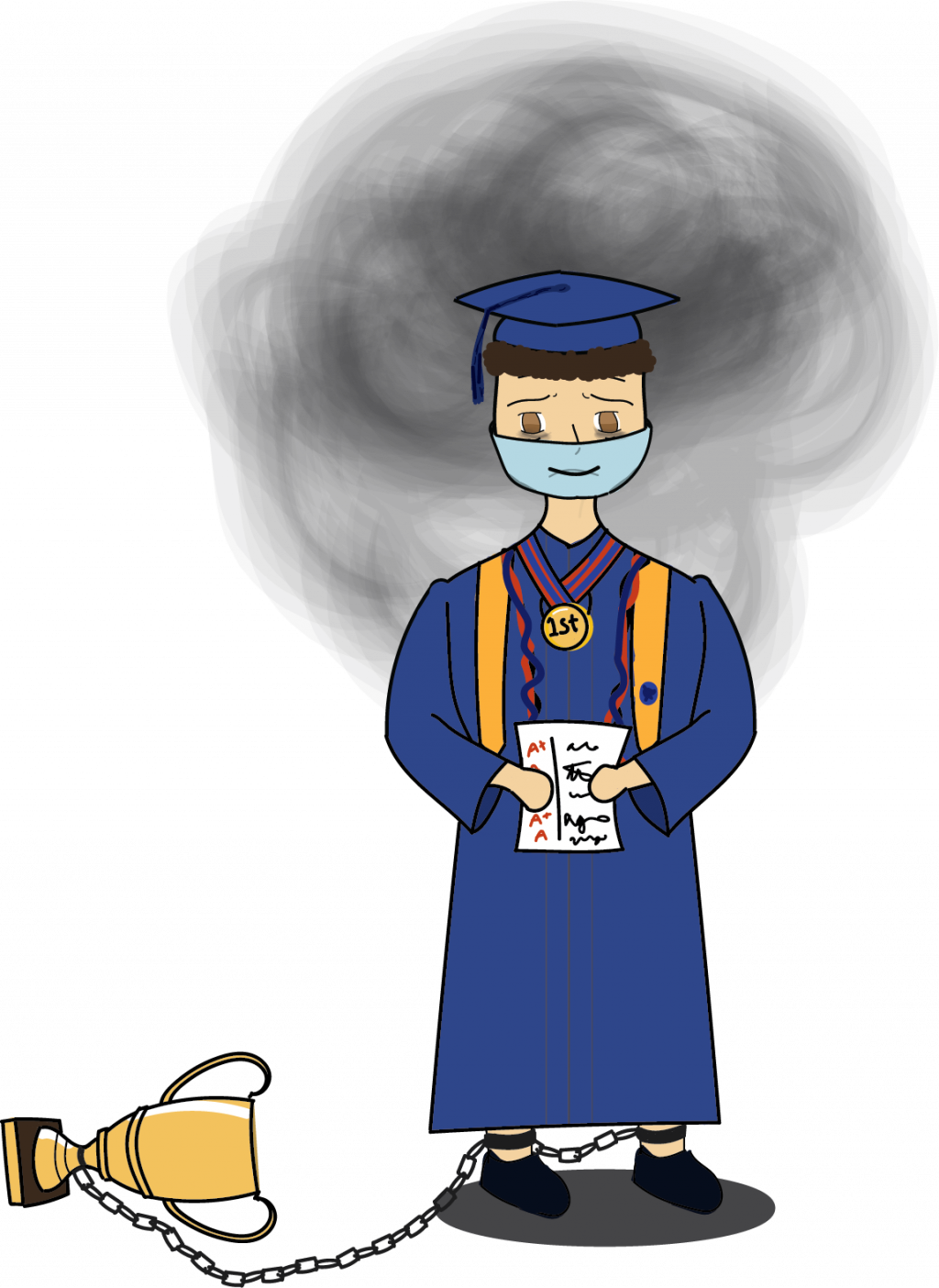
Illustration by Tiffany Nguygen
Education system facilitates academic burnout, mental exhaustion
Students are feeling suffocating pressure to excel not only in the classroom, but also in every other aspect of their lives. Everything, from rigorous standardized testing to the normalization of multiplicitous extracurricular activities, reminds students daily of how inadequate they are academically. There is no regard for the most essential aspect of success: a healthy balance.
The role of a substantial education has skyrocketed as a measure of one’s value in modern society. The most academically successful students are rewarded, while those who prioritize other paths are reprimanded for not sticking to the status quo. This toxic cycle places an emphasis on an institutionalized sense of achievement that only pertains to academic skill, discounting progress in other equally significant areas, notably mental health.
Many students tend to overlook how much their mental health and happiness matter in favor of dedicating all their time and energy into the responsibility of school. However, students must recognize that, while school is temporary, mental well-being is permanent. Having an unhealthy balance between work and life will only lead to disastrous damage of one’s overall psyche. This can result in burnout, mental illness, or both. As noted by a Pew Research Center survey of teenagers aged 13 to 17 conducted in the fall of 2018, seven in ten U.S. teenagers said that anxiety and depression are major problems among people their age. This was primarily due to the pressure of attaining good grades. That is precisely why focusing on oneself and their mental stability is an activity that should be valued every day.
One can say that academic excellence determines someone’s post-high school reality, such as the college they attend, their career, and their salary. However, possessing everything that the person ever wanted will not be the sole contributor to their happiness. Educational success and wealth do not dictate overall happiness. Someone can be extremely well-off in the traditional sense of an extensive education but feel absolutely nothing, while someone who has less can feel joy because they dedicated their life to having multiple facets beyond education to draw joy from.
The key for students to find balance is to discover what that balance means for them. One should not give up on school, but the amount of time being put into addressing their mental health must be reevaluated. Spending 30 minutes to genuinely enjoy a hobby, such as journaling, cooking, or creating art, could be the first step to integrating mental health into a daily routine. Reaching out to virtual and physical mental health resources is also extremely helpful. The hardest but most crucial step is the individual appreciating themself because life can drastically change for the better with positive encouragement and a simple break.